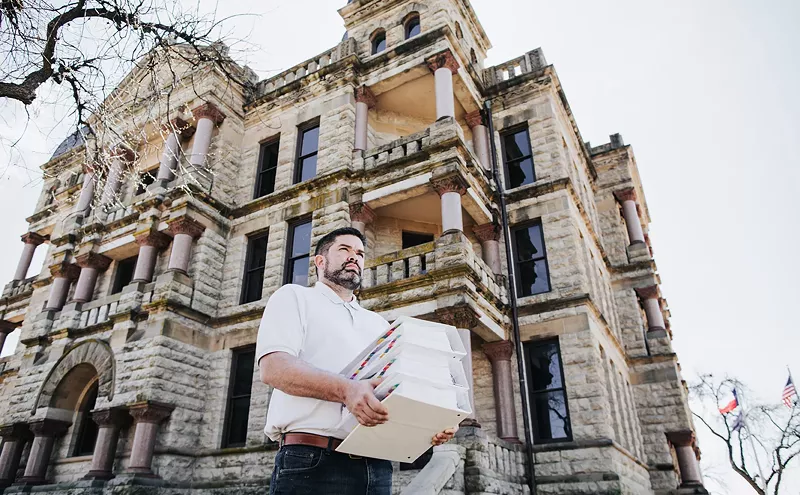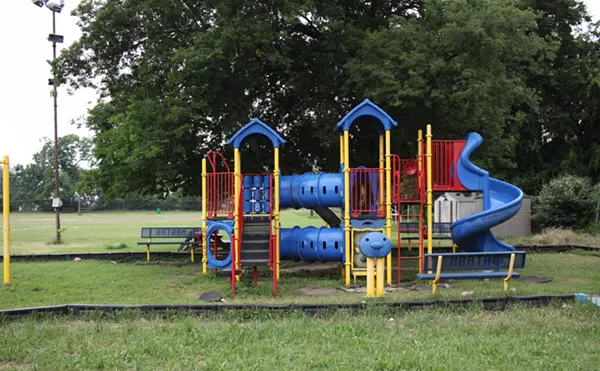Think that’s extreme? Then I know you have not read the decision in Stukenberg v. Abbott, which I have helpfully appended below. It’s the federal district court decision in a case brought against Texas in 2011 by a group of children who had been placed in the state’s foster care system.
Nothing in Dickens and frankly very little in the annals of atrocity in Europe or the Third World could equal the slithering horror of evidence in this case. The final opinion in the case handed down last December quotes a Texas judge who called the 29,000 children relegated at any given moment to Texas state custody “the children that even God has forgotten.” In fact the evidence in this case should provide a stern test of faith for even the most devout believer in God.
The federal court in Corpus Christi heard evidence of children who, with the permission of doctors, are “restrained” with powerful addictive drugs, then raped by their foster “parents.” Absurdly overburdened Texas Child Protective Services workers visit children infrequently and hurriedly, usually interviewing them in the presence of their rapists. How different is any of this from Boko Haram?
Sexual intercourse with children, far from rare, is a commonplace, the norm, often beginning in infancy under the current Texas system of foster care. One plaintiff, Crystal Bentley, entered the system at age 2 and was shifted through multiple foster homes. In all but one of those she was raped.
If and when a CPS worker did show up, the opinion says, “Bentley would try to hint about the abuse because she could not talk about it openly, but the caseworker would fail to notice or understand, and the abuse would continue after the caseworker left.”
The lesson for children in this situation is that no one in the universe cares what happens to them — certainly no adult and, as the judge quoted above said, not God.
Kristopher Sharp, a plaintiff, entered the system at age 10. He told the court he was raped both by caregivers and by other children. “Although he wanted to report the abuse, Sharp was unable to, because the abusive caregiver was generally present when Sharp was on the phone with his caseworker. Sharp also felt that no one would believe him or do anything about the abuse even if he had managed to report it.
“Sharp testified that during that time he felt like he did not have anyone who cared about him and that he would have been better off dead, because he ‘knew that [the abuse was] just going to keep happening.’”
He told the court: “I don’t think you can ever go back and undo the trauma of being raped by your caregiver or being beaten by your peers and feeling like you couldn’t talk about it and you didn’t have any hope.”
And in fact the court heard expert testimony to the effect that he’s right. It is often not possible to go back and undo damage done to most of these children, who in their formative years were taught the hard way — the brutal way — that their lives and their suffering were meaningless and without importance.
Dr. William Lee Carter, a child psychologist, told the court that a common outcome is what he called “learned helplessness,” a condition that manifests when the child becomes convinced that he or she can never hope for help or change. Rather than rare or infrequent, Carter told the court that learned helplessness was “typical” among the foster care children he had seen in Texas.
Needless to say, it’s not a very good preparation for life after these children “age out” of foster care and are dumped into mainstream life on their own. Carter illustrated the point by describing a young person he had seen less than two months after she aged out.
In Carter’s words, she had “no life skills and nowhere to go.” A week after Carter saw her, she dealt with these challenges by walking out into a highway, apparently deliberately, where she was struck by a vehicle and injured.
The court’s description states that “fortunately her injuries were not life-threatening.” But in reading those words it’s impossible not to wonder where she is now, if she’s still alive and whether she agrees it was fortunate that the car didn’t kill her.
In page after page of testimony and interviews in those reports, CPS caseworkers told investigators that their bosses at CPS cared obsessively about numbers and production, about getting the paperwork into the mill, often to the exclusion of any concern or interest in the welfare of children. A terribly grim theme that emerges from evidence recited in the opinion is of the effect — spiritual, moral and psychological — that this system has on CPS workers.
The opinion contains multiple instances of CPS interviews with children that had to be cut short because a child was unable to stop crying. In one instance a caseworker wrote in a report that a child “was crying and was very hard to understand.” The report said the child, a girl, was “crying so much that she refused to talk.” The opinion says: “Yet in the very next line the worker concluded, ‘No major problems were reported.’”
It’s stupid to assume that all of the caseworkers are stupid. These are young college-graduates who need jobs. The caseworker in the case just described knew full well what it meant when a child in foster care couldn’t stop crying, but that worker’s hands were tied.
In fact the evidence in the court’s opinion provides a powerful context for understanding some of the very cursory coverage these issues occasionally get in the news. Last month we read about kids sleeping in CPS offices. With the bigger picture in mind, we can assume a kid is only taken to the office to sleep because some CPS worker was mentally and spiritually unable to leave a child behind, knowing full well what was going to happen to the child that night. But not every kid can be taken back to the office to sleep or live. Faced with dozens and dozens of such cases, the caseworkers must also suck it up and leave many more children behind to the hogs.
The decision by federal District Judge Janis Graham Jack, putting Texas foster care under a special federal court master, goes to great pains to state that evidence of abuse alone, no matter how horrific, is not enough to constitute a federal civil rights violation and would not be legal justification for a court takeover. If Texas officials were doing their best under difficult circumstances, if they had little way of knowing what was going on in the field, then they would have the right to tackle any problems on their own.
That’s not at all what the court found. The court ruling cites study after study, report after report over a period of many years calling the attention of state officials to all the same the same despicable conditions and unconscionable abuses that the court found. There has never been any mystery about the abuses or what causes them.
The standards for even minimally proper responsible care are well established and have been known far and wide for a long time. This has everything to do with supervision and inspection — the job of Child Protective Services or CPS. But when report after report told Texas officials that their CPS field workers were being saddled with two and three times the maximum feasible caseload, state officials responded by trying to doctor the bureaucratic definition of a caseload.
In the judge’s 260-page opinion, the term “deliberate indifference” is repeated 43 times. Not accidental or unintended or unavoidable or regrettable indifference. The court is specifically not talking about any of those, and the distinction is all important. The standard for finding Texas culpable in this case was deliberate indifference, and for that finding a set of conditions had to be present.
The officials in charge of the Texas Department of Family and Protective Services had to know — they had to be well informed — that CPS caseloads were two and three times the practical maximum. They had to know exactly that that meant: that defenseless children placed under the state’s care and protection by the courts would be raped and beaten by both other children and their state-paid guardians. They had to know that the rapes and beatings would be common, pervasive, the norm — that a majority of the almost 30,000 kids placed in the system would suffer some form or degree of this fate.
They had to know what the long-term effects of this system would be on its graduates, that their souls would be extinguished within them, that they would be sent out into the world in a state of “learned helplessness” in which the only reasonable option might be walking out into traffic.
What the court found was that the people who run the state’s foster care and child protective services did know. The court cites reams and reams of evidence to show that all of these facts have been before them for years. Their response and the response of the legislators and governors and lieutenant governors for whom they worked was always that same quality cited more than 40 times in the opinion — deliberate indifference.
So that’s why I say the governor’s solution, putting a top Texas Ranger in charge, might work. Surely a Texas Ranger will know what to do with people who have been deliberately and knowingly running a child rape factory for decades. Certainly he won’t sully the name of the Rangers by presiding over some sleazy statehouse cover-up.
memorandum opinion and verdict of the court.pdf by Schutze












